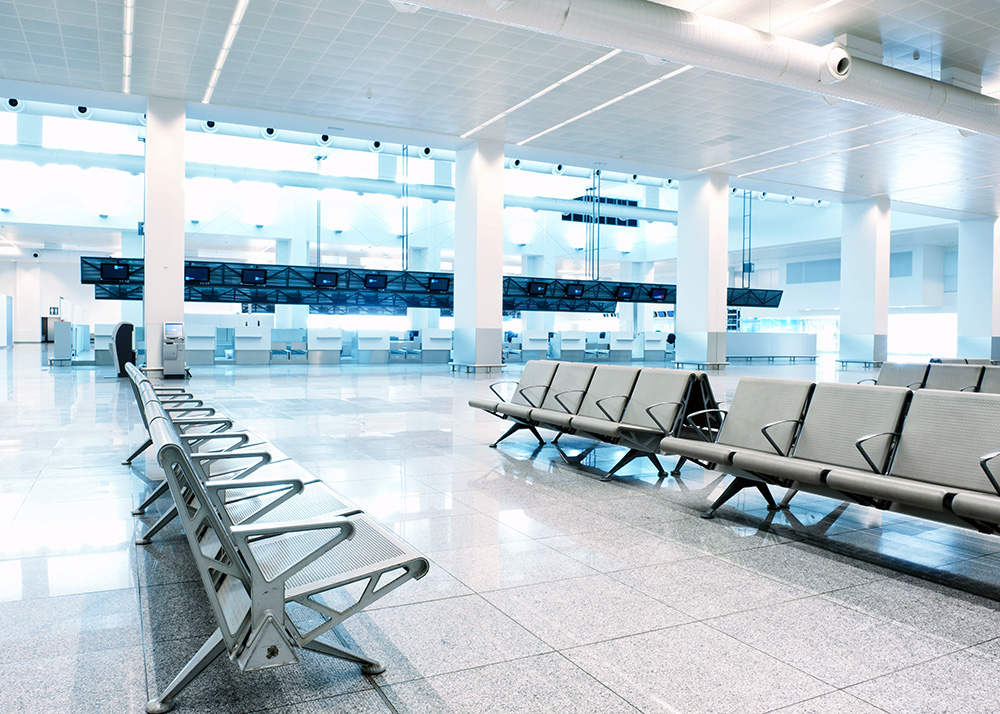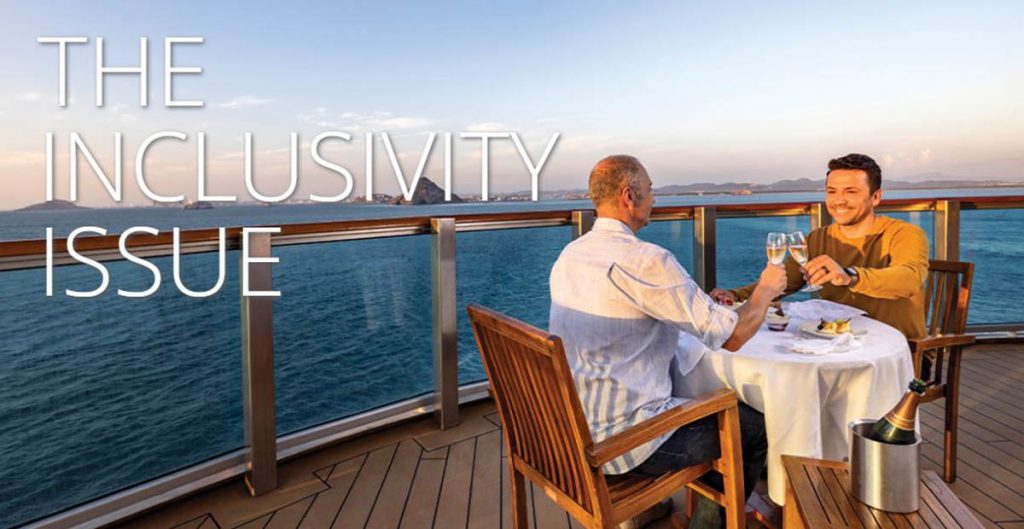"The Unvarnished Traveler" by Brian Raymond
"The Unvarnished Traveler" by Brian Raymond

Travel doesn't exist in a vacuum.
While we often think of travel as an escape from everyday life—or from the political headlines that dominate our newsfeeds—it's never completely separate. Travel is a reflection of the world we're living in, the stories being told, and the emotions people carry across borders. And now, with Donald J. Trump back in office for a second term, that reflection has grown more complex—especially for those coming to the United States and for Americans venturing abroad.
No matter where you fall politically, the return of Trump to the White House has triggered a fresh wave of uncertainty for the global travel industry. For travelers from abroad, the questions are quiet but persistent: Will I be welcome? Will I be safe? Will I be seen with suspicion?
For Americans heading overseas, the tone has changed once again. Conversation is less about curiosity and more about concern. And for those who travel to connect—not just to consume—these changes are felt on a deeply personal level.
Let's take a closer look at how tourism is being reshaped in real time, and what that means for travelers today.
Inbound Travel: Foreign Interest in the U.S. Declines Again
In 2024, the U.S. saw promising growth in inbound tourism. International flights were rebounding, hotel occupancy was rising, and interest in American cities, national parks, and cultural destinations had returned to pre-pandemic levels. Then came the election.
Since Trump's re-election, international travel to the United States has taken a noticeable downturn. Industry reports from early 2025 show that inbound tourism has dropped by an estimated 7.4% year-over-year, reversing gains made during the past four years. The decline is most significant in key markets like Canada, where cross-border leisure travel has dropped by more than 12%, and Europe, where booking interest has cooled sharply.
For many potential visitors, the issue isn't just political—it's personal.
The reinstatement of tough border rhetoric, the reintroduction of hardline immigration policies, and the president's renewed emphasis on "America First" messaging have contributed to a growing sense that international visitors may not feel as welcome as they once did.
And perception, in the world of travel, is everything.
The Tone at the Border Matters
Travel is, at its core, about trust. Travelers—especially international ones—want to feel that they're stepping into a country where they will be treated fairly, respectfully, and safely. But recent reports of increased detainments at entry points, stricter visa interviews, and uncomfortable encounters with U.S. Customs and Border Protection are making some travelers reconsider.
Even those from visa waiver countries—like the UK, France, Germany, and Australia—are expressing hesitation, citing a sense of unpredictability when it comes to entering the U.S.
As one European travel blogger recently put it: "I've visited the U.S. more than a dozen times, but I'm not sure I'd go back this year. The welcome feels different now. You can feel the tension."
Outbound Travel: The American Abroad, Reconsidered
While fewer travelers are coming into the United States, Americans traveling out are also facing a shift—though it's more about tone than policy.
The Return of the Political Conversation
If you're traveling abroad in 2025, you've likely noticed it already: the looks, the questions, the gentle head tilts.
"So… Trump again?"
The question is everywhere, from hotel lobbies in Lisbon to market stalls in Bangkok. It's not aggressive. But it's cautious.
And for many American travelers, especially those who value connection, empathy, and cultural exchange, these questions have returned with a weariness that feels familiar.
You become, once again, a reluctant ambassador—not just of your country, but of the values you hold and the way you move through the world. You might find yourself explaining, or distancing, or simply nodding. Because you know the questions come not from anger, but from confusion. From concern. From disbelief that America, with all its contradictions and power, has returned to this place.
And that's what makes travel now more delicate, more layered, more emotionally charged.
An Emotional Landscape for Travelers
For seasoned travelers—those who travel not for photos, but for perspective—there's a particular kind of emotional labor involved in this moment.
You book your flight with excitement, but also with a mental note: How will I be perceived this time?
You choose your words carefully at the welcome dinner. You think twice before wearing your college sweatshirt that says "USA." You find yourself seeking out conversations that feel safe, kind, curious.
And while most of your experiences abroad are still full of warmth and welcome, they are also more complicated. You carry your passport—and the assumptions that come with it.
The Impact on the Industry
The implications of this shift aren't just philosophical—they're financial.
-
International bookings into the U.S. have softened, particularly in key cities like New York, Los Angeles, and Chicago, where international tourism once drove a significant portion of hospitality revenue.
-
Canadian travel into the U.S. has dropped by double digits, a reflection not just of political concern, but also of emotional fatigue and a reevaluation of options. Canadians are now choosing domestic getaways, European city breaks, and South American adventures instead.
-
Conventions and conferences are seeing lower international attendance, with some organizations choosing to rotate events to more politically neutral countries.
For U.S.-based travel advisors, this means rethinking outbound destinations, adjusting messaging for sensitive markets, and offering clients more support around how to travel thoughtfully in this climate.
What This Means for You—the Thoughtful Traveler
If you're someone who travels with care—who chooses destinations for their cultural depth, who values experience over convenience, and who appreciates a warm welcome—these changes matter.
You're not just asking, "Where can I go?" You're asking, "Where will I feel good going?"
Here's how to navigate this moment with grace:
1. Travel as a Bridge, Not a Banner
Let your actions speak. Be kind, curious, open-hearted. Lead with questions instead of opinions. Show, through your presence, that Americans are not one thing—and that many of us travel to learn, not lecture.
2. Choose Destinations with Shared Values
Scandinavia, Japan, Portugal, and parts of South America continue to offer not just beauty, but a kind of emotional ease. The welcome is real, the curiosity mutual.
3. Be Mindful of the Moment
Understand that some people may associate you with headlines you didn't write. Don't take it personally. Offer understanding where you can.
4. Consider the Power of Local Travel
Even as international travel shifts, the U.S. itself still offers places of incredible kindness, diversity, and soul. From small towns in New England to cultural pockets in the Southwest, there are ways to experience the country that aren't defined by its politics.
Final Thoughts: Travel That Reflects, Not Escapes
Travel, when done well, doesn't let us hide from the world. It invites us to engage with it more honestly.
Trump's second term may have reopened old wounds on the global stage, but it also reminds us why we travel in the first place: to connect. To understand. To soften borders, not build them.
As a travel advisor, I'm here to help you navigate that with intention—whether it's choosing the right destination, preparing for thoughtful conversations, or designing a journey that reflects your values.
Because even when the world feels divided, travel still brings us closer.
Let's plan your next journey not just around where you want to go, but around how you want to feel when you get there. The world is still full of places that welcome you—not just in spite of the headlines, but because of who you are beyond them.
So how to choose the right vacation for you?
Vacations are an investment! With literally thousands of options, choosing the right vacation and the best value is difficult to sort through. That's where I bring my 12 years of travel experience and expertise to do this right, and get you the best value for your money. With the backing of the largest travel consortium behind me, we have options you can't find online. Plus our work just gets started once we book your dream vacation. Chat with us to learn more.
The world awaits you and we look forward to assisting you in choosing the exact right adventure on the waters or land for you and your companions!







